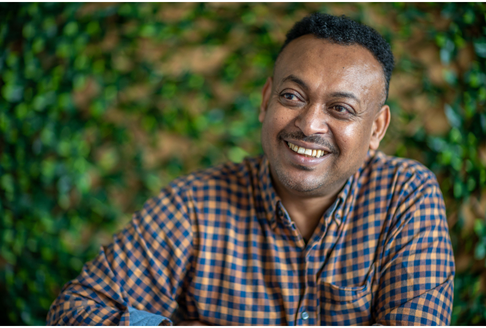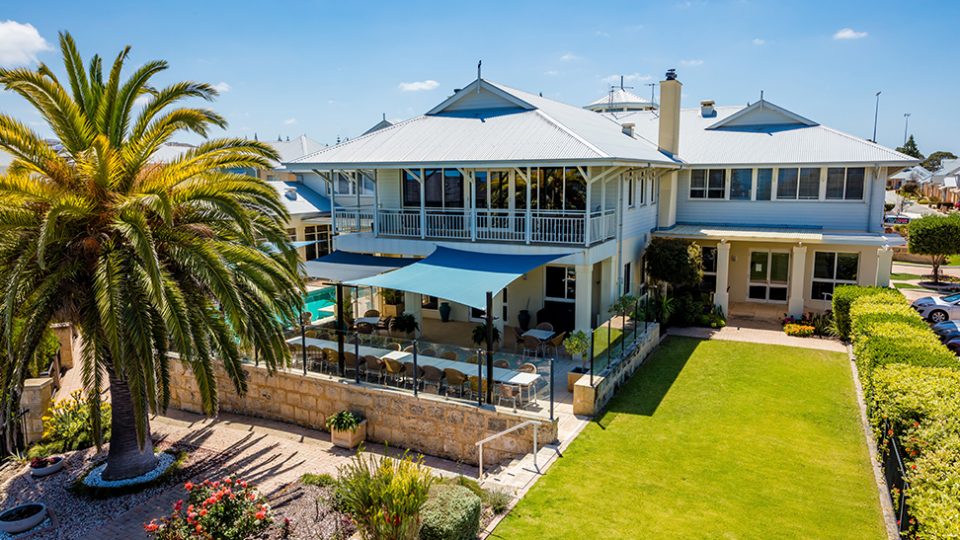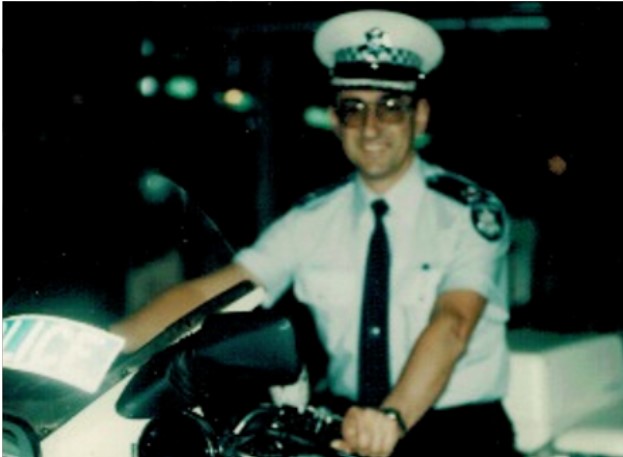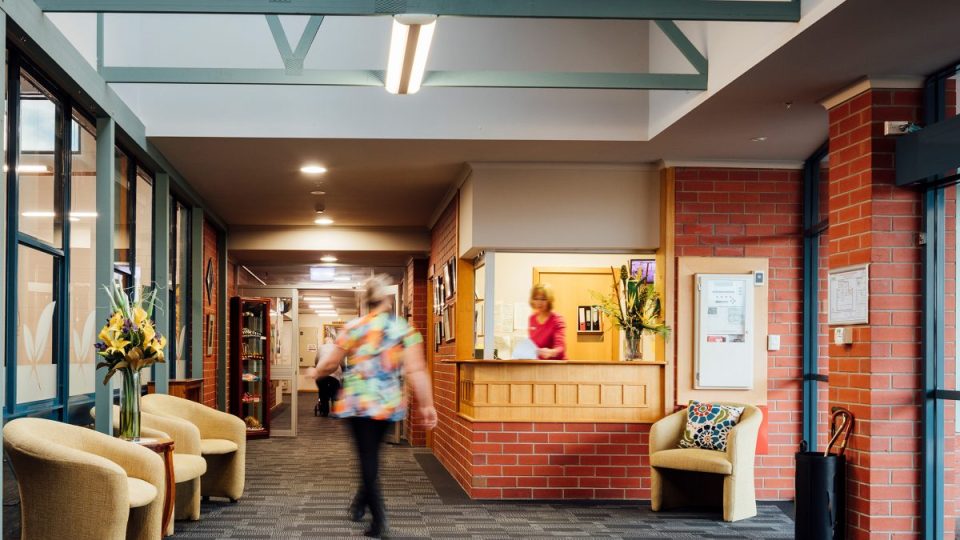Meet Solomon Sisay – acclaimed Ethio-Jazz musician and friend of Baptcare
- 28 Sep 2022

If you wandered into one of the NGV Friday Nights events this past August in Melbourne, you might have caught Solomon Sisay, world-class Ethio-jazz musician and one of the talented artists behind the sell-out album Sitota (meaning ‘gift’ in Amharic, the official language of Ethiopia).
Sitota, written by Solomon and fellow Ethiopian artist, Nhatty Man, was conceived as a tribute to Ethio-Jazz melodies, incorporating both original compositions and covers of popular hits. For those unfamiliar with Ethio-Jazz, the genre is described as a blending of traditional Ethiopian music with jazz, funk, soul and Latin. If you’ve watched the 2005 Hollywood movie, Broken Flowers, you’ll have experienced the unique rhythms of Ethio-Jazz featured on the soundtrack.
The story of Ethio-Jazz has been expressed in The Economist as ‘a tale of back-and-forth migration and the alchemical fusion of ideas. The dramatic saga involves political upheaval, accidental epiphanies, a series of dogged and inspired individuals …’.
It’s a description that seems apt for Solomon Sisay himself. This talented international artist, now performing to great acclaim across music festivals both in Australia and overseas, was formerly a resident of Baptcare Sanctuary – a transitional accommodation rooming house in Melbourne for people seeking asylum.
“Baptcare had so many support services to help me – I had to start planning so I could move out and stand on my own two feet.”
What is Baptcare Sanctuary?
Sanctuary’s support services are provided to help empower homeless people seeking asylum to live an independent life in the Australian community. Referrals are made from the Asylum Seeker Resource Centre, the Red Cross, Adult Multicultural Education Services and Life Without Barriers. A key focus of the service is to increase residents’ capacity to secure and maintain independent housing in the community. Solomon Sisay is certainly kicking goals in this regard.
“When I moved into Sanctuary, I knew I had a limited amount of time there – a couple of years at most – and I had to plan to get back on my feet,” says Solomon. “Baptcare helped me so much. Sometimes, I would think about home and what has happened. Those times, I would feel unhappy. But, Baptcare had so many support services to help me – I had to start planning so I could move out and stand on my own two feet.”
A young boy finds a love of music
Growing up as a young boy in Ethiopia, Solomon was encouraged to engage in after school activities. There were the normal choices of sports and games, however, young Solomon was attracted to music. He started with the trumpet. “But I didn’t really like it that much,” he laughs. “I was drawn to the saxophone. The teachers looked at my fingers,” he explains, twiddling his digits in mid-air. “Yes, they said – they look good – you can play saxophone”.
“Music is my life. I just feel so happy and at peace when I perform.”
Solomon didn’t know it at the time, but that decision launched a life-long love of music and a highly acclaimed career as a professional musician. He was already a well-known saxophonist in Ethiopia when approached by Axumite Band, one of the country’s most popular groups, to play with them. Solomon has gone on to international acclaim, touring Europe, the Middle East, Japan and New Zealand. This saxophone maestro has performed to adoring crowds at WOMADelaide, Port Fairy Folk Festival and MONA FOMA, just to name a few.
‘Music is my life,” says Solomon. “I just feel so happy and at peace when I perform. It doesn’t matter if I have a headache, or whatever. I just start playing – there’s no need for Panadol or a Nurofen! Music fixes everything.”
Strong roots in the community
Finding his feet in the community means more than performing as a successful musician. Solomon and his wife, Meseret, also run the highly reviewed Yetenbi Ethiopian restaurant in Barkly Street, Footscray. ‘She’s the cook – I’m the taster! And a good eater!” laughs Solomon. “Everyone knows my wife is a great cook. My friends come to my house to eat and say – wow! You need to open a place and serve this food. Get a restaurant!”
For about two years now, they’ve been working hard refining key traditional Ethiopian dishes, served up six days a week at Yetenbi. On Friday and Saturday nights, you can also catch Solomon performing Ethio-Jazz tunes while you dine – including pieces from Sitota.
From the upbeat ‘Yawatashal Woy’, through the sultry intrigue of ‘Tiztaye’ and ‘Bati’ and then finding more quiet, contemplative moments in ‘Lemelalesibet’, Solomon’s debut album seems reflective of his own journey from Ethiopia to Australia. One can only imagine the stoicism required to cope with the transition from famed musician to refugee – and the drive needed to rebuild his life in Australia, some 11,000 km away from the home he has always known.
When asked about that ‘special something’ inside of him which enables him to survive and thrive despite the darker moments he’s endured, Solomon is clear. “I just always try to be happy,” he explains. “I knew I was in a good place at Sanctuary – people at Baptcare worked hard to support us with good mental health, the church supported us to get back on our feet,” he says. “Even when I think about what is happening at home, I remind myself to be happy now.”
Achieving fullness of life
Looking ahead to what’s next, Solomon is hopeful of producing a follow up album to Sitota and perhaps finding a better work-life balance, now that he has two little boys to bring up. “One is three years and nine months and the other is two years and nine months,” Solomon proudly explains. “But it’s hard running a business and finding enough time to be with them.”
It’s a common theme driving Australians working to provide for their families, both materially and emotionally. One can’t help but reflect on young Solomon growing up in Ethiopia, experimenting with music and finding a life-long joy. Will his boys follow in dad’s footsteps? Or perhaps become great cooks like their mum? No doubt, they will find their own path, secure in a loving family who are working hard to achieve fullness of life. That is their ‘sitotota’ or gift to the next generation of Sisays.
A brief background on Ethiopia’s refugee crisis
The UNHCR describes Ethiopia’s Tigray refugee crisis as ‘a full-scale humanitarian and protection crisis’. It estimates that there are currently more than 2.6 million internally displaced people and more than 97,000 refugees and asylum-seekers in the Afar, Amhara and Tigray regions of Northern Ethiopia. The current crisis evolved after armed conflict broke out between the federal government and regional forces in 2020, forcing millions of people to flee their homes. Reports of widespread human rights violations, including sexual violence, speak to the peril and trauma experienced by those who have fled the country and are now seeking asylum.
Conflict was occurring in Ethiopia for decades before this latest turmoil. Many Ethiopians have known only war and disruption. The country is also experiencing its worst drought in 40 years, compounding the struggle to find fresh water and food in a country already experiencing the oppression of armed conflict.
It is against this backdrop of trauma and hostility that Solomon’s journey to reclaim his independence as a successful musician is even more remarkable.
If you’d like to catch Solomon performing live with his band, check out their upcoming dates on Facebook.
If you would like to make a contribution to Baptcare services, such as Sanctuary, which provide critical support to people seeking asylum, please click here.
Community news
-

BaptistCare to acquire Keyton’s Western Australian retirement village portfolio
BaptistCare is pleased to announce that we have entered into an agreement to acquire Keyton’s portfolio of retirement villages in WA.
- 13 Nov 2025
-

Spotlight on Residents: Reg Baker
At Baptcare, we are always delighted to learn more about our residents’ lives. They are often filled with excitement, joy, and adventure, and it truly reminds us how rich a person’s life is—and continues to be—when they join one of our residential aged care communities. Today, we are honoured to share the remarkable story of one of our residents, Reg Baker, who lives at Baptcare Peninsula View Residential Aged Care community.
- 10 Nov 2025
-

Staff spotlight | Leonie Irvine – 35 years of service in aged care
Leonie is one of our dedicated Lifestyle Assistants at Karingal Residential Aged Care community in Devonport, Tasmania. She recently celebrated an incredible milestone - 35 years of continuous service at Baptcare. In a sector where long-term service is increasingly rare, Leonie’s 35-year journey stands out as something truly special.
- 10 Nov 2025
